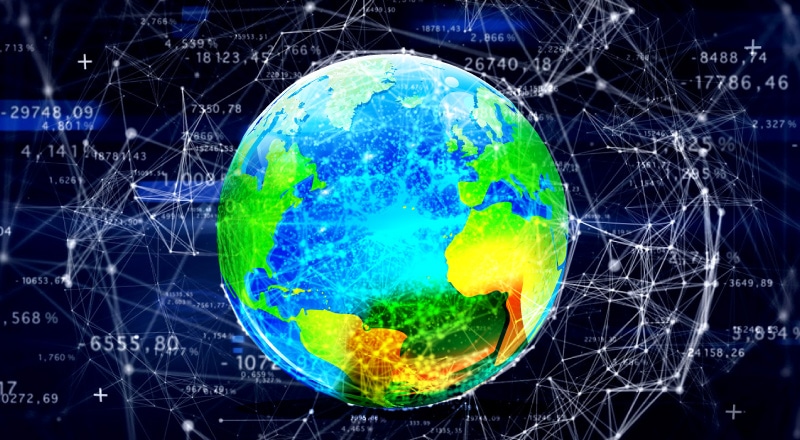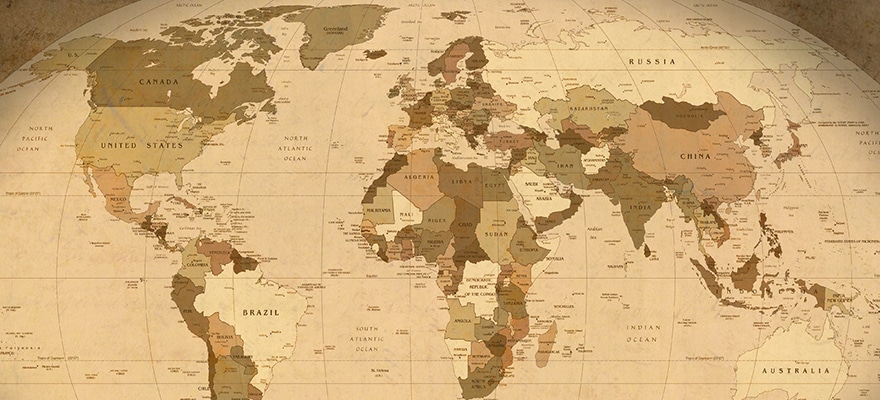This guest article was written by William Laraque who is the Managing Director of US-International Trade Services.
China's is not the first regime to have considered trade routes as critical to economic growth.
The Middle East and the Pre-Brexit End of British Hegemony
France under Napoleon tried to constrain England's valued trade with India by invading Egypt and controlling communication with the East. The battles of Aboukir Bay and Trafalgar changed the trajectory of this French attempt at hegemony in trade.
More instructive for the proponents of One Belt, One Road is the hodgepodge created by superimposing European interests on the complex political, economic, religious and cultural fabric of the region with Sykes-Picot.
The discovery of large amounts of oil and the transformation of the British fleet from coal to oil, catalyzed by Churchill, the then First Lord of the Admiralty, ratcheted up the competitive Anglo-French interest in the Middle East region. The Suez Canal Crisis threatened to cause war among England, France, the Soviet Union, Israel and the US.
After Israel invaded the Sinai, English and French paratroopers landed along the Suez Canal. Under heavy pressure from the US and the Soviet Union, French and British troops withdrew and this retreat marked for many the end of British empire, trade and political hegemony.
I will not rewrite "The Prize", Daniel Yergin's Pulitzer Prize-winning novel about oil, history, geopolitics and war. Fast forwarding to today, fracking of tight oil and tight gas, made possible by the technological innovations of the 80 year-old George Mitchell, resulted in the US being much less dependent on Middle East and OPEC imports. The US went from importing over $360 billion a year of oil to importing $182 billion worth in 2015.
A Fundamental Change in Global Trade
Nothing is more hyped, oversold and less understood than the internet and its use in global trade. Use of the internet in global trade is indeed liberating as Eric Schmidt of Google constantly avows, but nothing is more poorly understood in its practical application.
Global trade has historically been mercantilist in application. This application has also been paternalistic in the sense that the parent countries have accumulated wealth as a result of exploiting the mineral and labor resources of colonized and the countries importing manufactured and finished goods. The colonized and importing countries then pay for the finished goods provided by the foreign sellers.
In addition, brokers from the parent countries sourced the tea and spices from Asia and then oil from the Middle East. Any wealth acquired in the lesser-developed countries was naturally a fraction of that gained by the trade-savvy and manufacturers in the relatively developed world.
Nationalism and independence movements changed these arrangements somewhat, but the preponderance of wealth continued to be transferred to the countries providing the technologies for the exploration and exploitation of this mineral wealth and markets.
The advent of the internet has changed this dynamic in several ways. For example, Chinese manufacturers are able to place their goods for sale on Alibaba-run platforms while Ant Financial and Alipay provide the ability of buyers to pay for goods online. The value of goods purchased in this fashion does not typically exceed $800. US third party manufacturers can place their goods for sale on the Amazon-provided platform as well. These developments are 'liberating' in that native exporters can now access cross-border buyers directly (without brokers) and thereby gain wealth.
Diversification and the Internet
Saudi Arabia recognizes the importance of Internet-based companies by investing $3.5 billion in Uber and by inviting Silicon Valley executives to invest in Saudi Arabia. The need to diversify from oil and to provide jobs for the young is recognized as being key to the development of the Saudi economy.
Problems and Resolutions
Selling and buying via the internet is fraught with issues of counterfeiting, misrepresentation, intellectual property violations and other breaches of law and Regulation .
This process is also fraught with opportunities for cybercrime, unprecedented intrusions into personal privacy by systems and processes which use algorithms to determine credit-worthiness. The Lending Club experience provides proof that lending by algorithm works well in sunny economic times but are disastrous when economic clouds arrive.
Runaway regulation is also a problem. To paraphrase Jeff Immelt of GE, everyone agrees that SMEs engaging in global trade is the (economic development) solution, while regulation is used everywhere to kill these small businesses.
Default to the Usual Suspects
The reorganization of Lending Club and the trials and tribulations of Rocket, the German startup incubator, are bracing lessons in the vulnerability of internet-based startups. These initial failures at replicating the successes of Silicon Valley in diverse markets are instructive. So is the faltering of Yahoo whose revenues fell 15% in the first quarter of this year, losing $439 million and experiencing declines during six of the last seven fiscal quarters.
Zigging when everyone else zags
Danielle Rottenberg has written about what leads startups to succeed and to fail. In a nutshell, the nurturing and experience of seasoned business persons is crucial to the survival of the internet-based startup. It is critical everywhere.






















